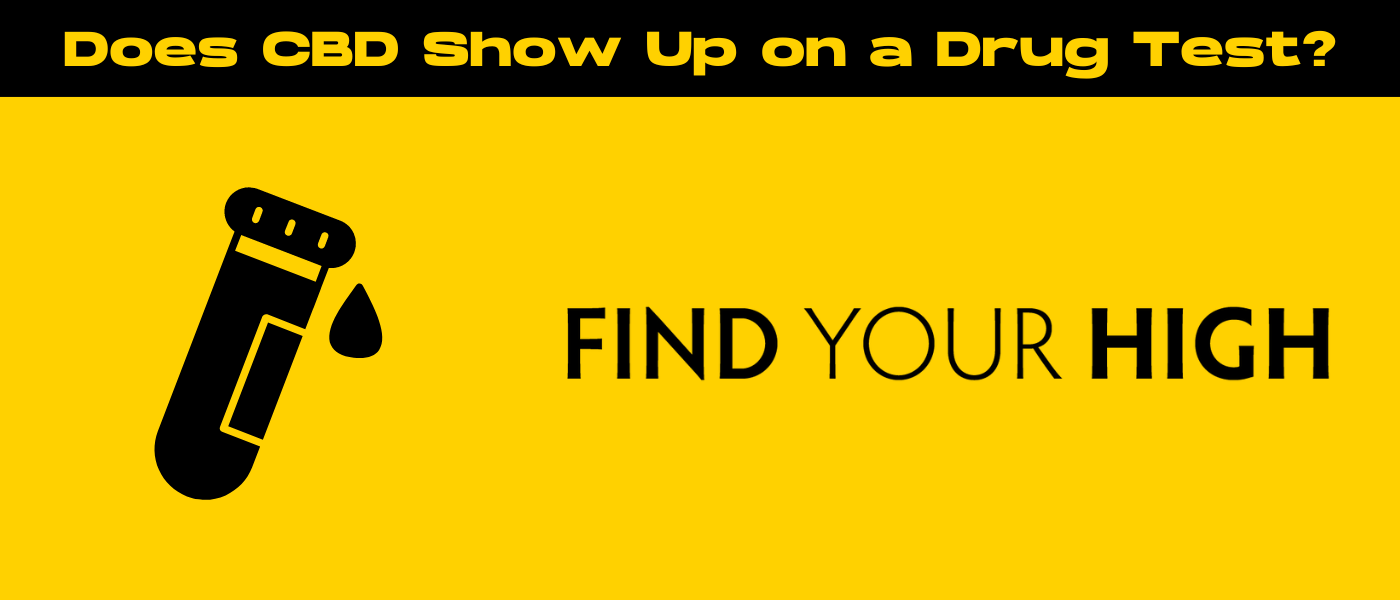Does CBD show up on a drug test? Cannabidiol, commonly known as CBD, has taken the wellness world by storm over the past few years. Derived from the hemp plant/cannabis sativa plant, CBD is celebrated for its potential health benefits, which many people have found helpful for managing stress, anxiety, and pain without the psychoactive effects that come with THC.
As its popularity grows, so do the questions and misconceptions surrounding its use, especially regarding drug testing. One of the biggest concerns is whether using CBD can affect your job or other responsibilities by showing up on a drug test.
Needless to say, it’s essential to clear up any confusion—and we’re here to do just that. While CBD itself typically doesn’t show up on drug tests, the situation can get tricky, especially if your hemp-derived CBD products contain trace amounts of THC.
This blog aims to shed light on CBD and drug tests, separating fact from fiction so you can enjoy the benefits of CBD with peace of mind. Whether you’re a seasoned stoner or just curious, we’ve got you covered with all the important details to keep you informed and stress-free!
Understanding CBD
So, what exactly is CBD? Cannabidiol (CBD) is one of over 100 chemical compounds found in the cannabis plant, but unlike its more famous cousin THC, it won’t get you high.
CBD is typically derived from hemp, a variety of cannabis that contains less than 0.3% THC—this low level is what sets it apart from marijuana, which usually has a much higher THC content. The extraction process involves using methods like CO2 extraction or ethanol to isolate the CBD from the plant material.
CBD products can come in many forms, including oils, capsules, gummies, and topicals, which can suit just about anyone’s preferences.
Legally, CBD is a bit of a mixed bag in the U.S. While the 2018 Farm Bill legalized hemp-derived CBD on a federal level, the laws can vary from state to state. Some states may impose additional restrictions, so it’s wise to check your local regulations before diving into the world of CBD.
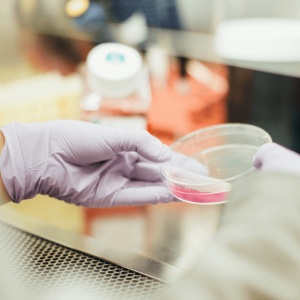
The Science of Drug Tests
Now, let’s dive into how drug tests actually work. The primary goal of these tests is to detect specific substances in your system, and they do this by checking for traces of drugs in bodily fluids or hair samples.
The most common type of drug test is the urine test, which is popular due to its cost-effectiveness and ease of administration. Blood tests can also be done, though they’re less common, while hair tests provide a longer window of detection but can be more intrusive.
As for what substances are typically tested, most standard panels look for THC, cocaine, opiates, amphetamines, and PCP. It’s important to note that while CBD itself is generally not tested for, if you’re using CBD oil that contains trace amounts of THC, there’s a possibility it could show up on a drug test—this is where the concern lies for many users.
Understanding how drug tests work can help you make informed decisions about your CBD use and stay ahead of any potential issues.
Does CBD Show Up on a Drug Test?
So, does CBD show up on a drug test? Well, when it comes to the question of CBD showing up on a drug test, the answer isn’t quite as simple as you might hope. CBD itself is not usually targeted in standard drug tests; they mainly look for THC (the compound that gives you the high) and other illicit substances. The tricky part arises when you consider the products you’re using.
Many CBD oils, gummies, and other products can contain trace amounts of THC, and depending on how much you consume, it’s possible for those tiny amounts to accumulate in your system enough that they might lead to a positive drug test.
A study published by John Hopkins reported that even a full-spectrum CBD product, which contains a wider array of cannabinoids, can cause a positive drug test result in some users, particularly if they are consuming it regularly.
So, while the risk isn’t guaranteed, being mindful of the products you select and understanding their composition is key to navigating this terrain with confidence.
The Role of THC in CBD Products
Understanding the role of THC in CBD products is essential for anyone concerned about drug testing.
There are three types of CBD products you might encounter:
- Full-spectrum
- Broad-spectrum
- CBD isolate
Full-spectrum products contain all the cannabinoids found in the cannabis plant, including THC, which means they can provide additional benefits through the “entourage effect.” On the flip side, broad-spectrum products contain multiple cannabinoids but have had the THC removed, while CBD isolate contains only CBD without any other cannabinoids.
The presence of THC in full-spectrum products is why users need to tread carefully—while legal limits for THC in hemp-derived CBD are capped at 0.3%, even this small amount can still potentially show up on a drug test if taken frequently or in larger doses.
So, what is the key takeaway here? Well, if you’re using CBD for its health benefits but are also subject to drug testing, it might be worth opting for broad-spectrum or isolate options to steer clear of any surprises.
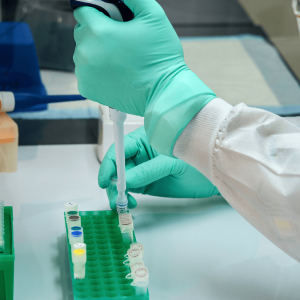
Does CBD Show Up on a Drug Test? Factors Influencing Drug Test Results
When it comes to drug tests, several factors can impact whether or not you might test positive for THC after using CBD products.
It’s not just about the amount of CBD you use, but also how your body processes these substances. Let’s break down some of the key influencers:
- Individual Metabolism and Body Chemistry: Everyone’s body metabolizes cannabinoids differently. Factors such as age, weight, and overall health can significantly affect how quickly CBD and any THC present are processed and eliminated from your system. For example, a faster metabolism may help clear substances more quickly, reducing the chances of a positive drug test.
- Frequency and Amount of CBD Use: If you’re a heavy user or consume sizable amounts of CBD regularly, the accumulation of THC in your system can become more pronounced. Occasional users are less likely to have THC levels that could trigger a positive test than those who use CBD products daily or in large doses. Knowing your usage habits can help you gauge the risk involved.
- Type of CBD Product Consumed: As mentioned earlier, there are various types of CBD products available. Full-spectrum CBD products contain THC and may pose a higher risk of affecting drug test results, while broad-spectrum and isolate options are less likely to cause complications. Be mindful of what you choose to consume, as even small amounts of THC can build up in your system over time.
By understanding these factors, you can make more informed decisions about your CBD use while keeping drug testing in mind. It’s all about balance and being aware of how your body might react!
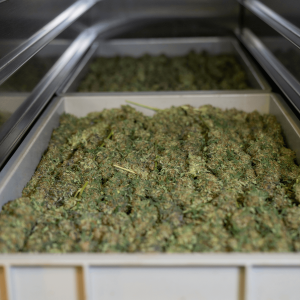
Choosing the Right CBD Product
When it comes to finding the right CBD product for your needs, paying attention to lab testing and transparency can make all the difference.
Quality products, such as those found on Hyperwolf Direct, often come with third-party lab results that verify their cannabinoid levels, ensuring you’re getting what you pay for. These lab tests not only confirm the CBD and THC content but also check for harmful contaminants, such as pesticides or heavy metals. So, before you make a purchase, look for brands that happily share their lab results—this is a good sign of a reputable company that values consumer safety.
Reading product labels is another essential step in making informed choices. Check for the THC content specifically—products will usually list this information in milligrams. If you’re concerned about testing positive, aim for products with 0.0% THC or those specifically labelled as “THC-free.”
While some full-spectrum products provide added benefits from the entourage effect, they may also increase the risk of THC building up in your system. Broad-spectrum products might be a safer bet as they contain multiple cannabinoids without THC, giving you the benefits without the worry.
If you’re on the hunt for low-THC or THC-free options, consider looking into well-known brands that focus specifically on these formulations. Many trusted companies offer a range of products like CBD isolates or broad-spectrum oils that cater to those who need to avoid THC entirely.
Always remember, being aware and informed about what you’re putting into your body is key, especially when balancing wellness and compliance with drug test requirements. With a little legwork, you can find the right CBD product that meets your needs without the unintended consequences.
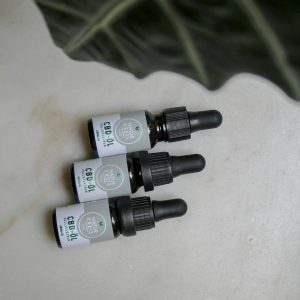
What to Do If You’re Tested
Facing a drug test can be daunting, especially for those who use CBD products. The first step is to be proactive. If you know a test is on the horizon, consider pausing your CBD use a few days (or weeks) before the test. While the legal limit for THC in hemp-derived products is only 0.3%, it’s important to remember that even small amounts can accumulate in your system, depending on your consumption habits.
Communication is also key; if questioned about your CBD use, be upfront. Share specifics about the type of CBD product you use (broad-spectrum or isolate), as these typically contain little to no THC.
You also have the right to ask for confirmation regarding the testing parameters—some tests may not accurately differentiate between THC and CBD. Familiarising yourself with your rights as a CBD user can empower you to handle situations confidently, ensuring you’re informed about what testing methods might be used and what your results could imply.
Alternative Drug Testing Methods
When it comes to drug testing, the method employed can greatly influence the outcomes. Most employers rely on urine tests, which primarily look for THC metabolites. However, alternative methods like saliva and hair tests are gaining traction. Saliva tests can detect recent use—typically within the last few hours or days—while hair tests offer a longer detection window, showing use over months.
While urine tests are the most common, they can sometimes lead to false positives, particularly in users of full-spectrum CBD products. Emerging technologies are attempting to refine drug testing to better distinguish between CBD and THC. For example, some new saliva tests are being designed to differentiate the compounds by looking at their metabolic byproducts. This would allow CBD users to potentially clear their names more effectively.
As these innovations develop, they hold the promise of increasing fairness and accuracy in drug testing, especially for those who use CBD for its therapeutic benefits rather than for intoxication.
Legal Implications of CBD and Drug Testing
As CBD continues to gain popularity, especially for its therapeutic benefits, understanding the current regulations surrounding its use in workplaces is crucial.
In many places, CBD derived from hemp is legal at the federal level in the United States, as long as it contains less than 0.3% THC. However, state laws can vary significantly, meaning that employers have different legal frameworks to navigate.
Many companies have adopted drug-free workplace policies that include zero-tolerance for THC, even if it comes from CBD. This can lead to potential consequences for employees who test positive for THC, regardless of whether they were using it for legitimate medical purposes.
Failing a CBD drug test (in other words, producing a positive CBD drug test) can result in disciplinary action, including termination, which raises concerns about employee rights. Workers should be aware of their rights and communicate with their employers about their CBD use, ideally before a test is scheduled, to help avoid misunderstandings and protect their job status.
The Future of CBD and Drug Testing
Looking ahead, the landscape for CBD regulation and drug testing is likely to evolve. As more research surfaces about the safety and efficacy of CBD, we can expect an increased push for standardized testing protocols that protect users.
Current trends indicate that regulatory bodies may implement more precise testing standards that can differentiate between CBD and THC, helping to alleviate the concerns of users who rely on CBD for health benefits.
Researchers are making advancements in testing technology aimed at identifying metabolic byproducts unique to THC and CBD, which could allow future drug tests to discern between the two compounds more accurately. This means that in the not-so-distant future, we might see drug tests adapting to be more transparent regarding the use of CBD, making it easier for employees to navigate workplace policies without fear of losing their jobs.
Such developments would not only support healthier workplaces but also contribute to the ongoing destigmatization of cannabis products in professional settings.
Does CBD Show Up on a Drug Test? Conclusion
In summary, navigating the world of CBD and drug testing can feel overwhelming, but it’s essential to understand the key points we’ve discussed.
First, it’s important to know that while CBD derived from hemp is federally legal in the U.S. with less than 0.3% THC, state laws and employer policies can vary widely. This means what’s acceptable in one workplace might not be in another, leading to potential challenges for CBD users. We also highlighted practical steps for those facing drug tests, like pausing CBD use ahead of time and being open about the type of products you’re using.
As the drug testing landscape evolves with new technology emerging, the hope is that more accurate methods will be developed to distinguish between CBD and THC. This change could pave the way for a more equitable environment for CBD users, allowing them to reap the health benefits of these products without the fear of job-related repercussions.
In closing, staying informed is crucial. As research continues to expand on CBD and its effects, it’s vital for users to be educated about their rights and the potential implications of their CBD use in relation to drug testing. We encourage readers to actively seek out knowledge, whether through reputable sources or discussions with healthcare professionals.
By making educated choices, you can confidently navigate your CBD journey while safeguarding your health and employment. Always remember that being proactive will put you in the best position to enjoy the benefits of CBD without unnecessary stress.
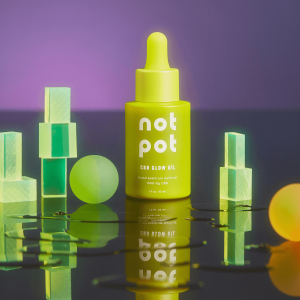
Does CBD Show Up On a Drug Test? Frequently Asked Questions (FAQ)
1. Can just CBD fail a drug test?
While CBD itself is not typically tested for in standard drug tests, the risk of failing a drug test largely comes down to the potential presence of THC in the products you’re using.
Many CBD products can contain trace amounts of THC, particularly full-spectrum varieties, which may be enough to trigger a positive result on a standard urine test. If you’re using CBD oil, gummies, or other formulations, it’s crucial to check the product’s lab results for THC content.
In a nutshell, if your CBD product contains even low levels of THC, it could possibly lead to a fail. So, if you’re concerned about drug testing, opting for broad-spectrum or CBD isolate products, which are purged of THC, might be a smarter choice.
2. Does LabCorp test for CBD?
LabCorp is one of the largest clinical laboratory networks, and while they primarily focus on standard drug testing panels that typically detect THC, they don’t perform tests specifically for CBD. Their drug screenings are designed to identify the presence of drugs, like THC, opiates, and other controlled substances, rather than differentiate between cannabis compounds.
The good news here is that, for users of CBD only products that are THC-free, there’s less worry about your results indicating anything related to CBD. However, if you take a broad-spectrum CBD with trace amounts of THC, there’s still a chance for a positive test, especially if the concentration is high enough. Always read up on your products to ensure you know what you’re consuming.
3. Is CBD legal in all states?
CBD’s legal status can be a bit tricky. On a federal level, hemp-derived CBD with less than 0.3% THC is legal, thanks to the 2018 Farm Bill. However, each state has the power to make its own laws regarding CBD, leading to a patchwork of regulations across the country.
Some states have embraced CBD fully, while others impose tighter restrictions, or even ban its use altogether. To keep things simple, it’s best to check the laws in your specific state or consult with knowledgeable professionals.
Knowing the legal landscape can save you from potential headaches down the line, especially if you’re using CBD for wellness.
4. Does CBD show up on a drug test?
When it comes to drug testing, many people using CBD wonder if it could show up on their results. The short answer is that while CBD itself is not generally the focus of drug tests, there’s a catch. Most standard drug tests are designed to look for THC, the psychoactive compound found in cannabis, rather than CBD. However, many CBD products, especially those that are full-spectrum, can contain trace amounts of THC, which can lead to a positive result.
If you’re using high-quality CBD products derived from hemp, particularly those labeled as broad-spectrum or CBD isolate, your chances of failing a drug test due to CBD are relatively low. Broad-spectrum products are designed to include multiple cannabinoids without THC, while isolates are pure CBD with no other cannabinoids present. It’s always smart to check lab results and certifications from third-party testing to verify the THC content in the product you are using.
Additionally, the sensitivity of the drug test plays a significant role. Some tests can detect THC levels as low as 10 ng/mL, which means that even minimal amounts from CBD could potentially trigger a positive result. If you’re subject to drug testing and using CBD, it’s a good idea to consider avoiding full-spectrum products altogether and opt for those that specifically state they are THC-free.
Also, timing matters. Regular use over an extended period can lead to THC accumulation in your system, increasing the chances of detection. If you’re in a situation where a drug test is on the horizon, you might want to stop using CBD for a period prior to the test to ensure you’re clear. Overall, being cautious and informed about the products you choose can go a long way in avoiding any unnecessary complications.
5. What are the different types of drug tests?
When it comes to drug testing, there are several common methods used to detect the presence of substances like THC, and each has its own set of pros and cons. Here’s a quick rundown of the most common types:
- Urine Drug Tests: This is the most frequently used method for drug testing, primarily because it’s cost-effective and easy to administer. Urine tests can detect recent drug use and are able to identify the presence of various substances, including THC, for several days or even weeks after use, depending on factors like frequency of use and individual metabolism.
- Blood Tests: Though less common for routine drug testing, blood tests can provide a more accurate picture of what substances are currently in a person’s system. They can detect THC, but typically only stay positive for a shorter duration compared to urine tests, often only up to a few hours to a few days.
- Saliva Tests: These tests involve collecting a saliva sample and can detect recent drug use, generally within a few hours or up to a few days post-consumption. Saliva tests tend to have a shorter detection window for THC, which can be an advantage for some users.
- Hair Tests: While less commonly used, hair tests can provide a longer detection window, potentially identifying drug use over a period of months. This method tests a sample of hair follicles for traces of drugs, including THC. However, the drawback is that they are more expensive and provide a less immediate picture of current impairment.
- Sweat Tests: This is a less common method and involves wearing a patch that collects sweat over a period of time. These tests can detect drug use over several days or weeks. However, they aren’t typically used for routine screening and are more often employed in specific applications, like monitoring individuals in substance abuse programs.
Understanding the differences in workplace drug testing methods can help you make informed decisions about your CBD use, especially if you’re subject to testing at work or other places. Always keep in mind that some tests are more sensitive than others, so knowing what type of test you might face can be beneficial in navigating your choices around CBD products.
Summary
It’s always wise to stay informed when it comes to CBD and drug testing. Remember that the potential for false positives in drug tests can often be linked back to the presence of THC in CBD products.
With the varied legal status of CBD across states, being aware of local regulations is essential, particularly if you’re using CBD for its health benefits. Whether it’s understanding your rights or choosing the right product, staying proactive will keep you one step ahead—meaning you can enjoy the calming benefits of CBD with a little less anxiety about drug tests.
And as always, don’t hesitate to reach out to professionals if you have more questions tailored to your unique situation!

 Rewards
Rewards



